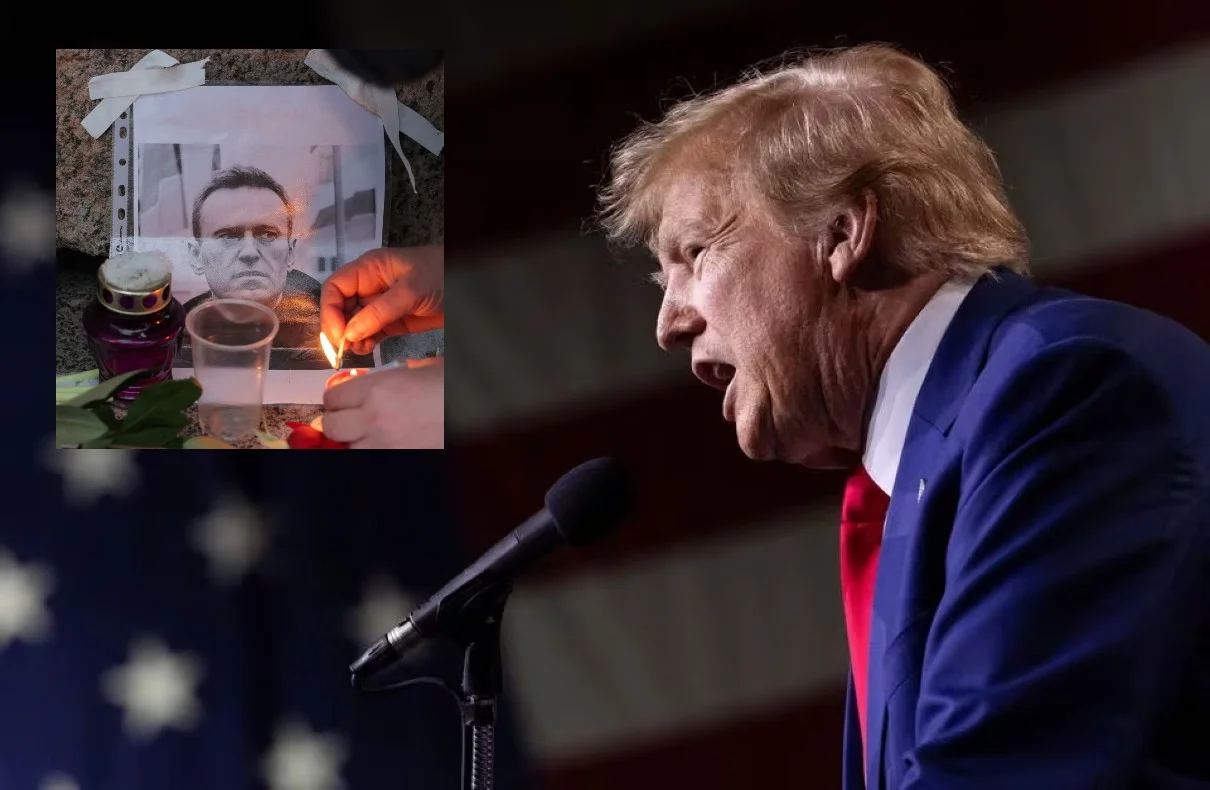
In the realm of global politics, the relationship between former US President Donald Trump and Russian President Vladimir Putin has been a subject of much debate and scrutiny. Recently, the sudden death of Russian opposition leader Alexei Navalny has further fueled the discussion surrounding Trump’s response to this tragic event.
Three days after Alexei Navalny’s collapse in a Russian penal colony, Donald Trump finally addressed the issue on his Truth Social network. Trump’s statement was brief, focusing primarily on his own political grievances rather than expressing solidarity with the international outrage over Navalny’s death. This belated acknowledgment raised eyebrows and drew criticism from various quarters.
Nikki Haley, who was once Trump’s opponent in the Republican presidential primary, openly criticized Trump for his lack of substantial comment on Navalny’s death. On ABC News’ This Week, Haley questioned whether Trump’s silence indicated his alignment with Putin or his indifference towards a significant political event. Her remarks further highlighted the concerns surrounding Trump’s approach to the situation.
Norby Williamson: A Key Player at ESPN and the Controversy Surrounding “The Pat McAfee Show”
Haley’s criticism was not isolated. Several prominent American politicians, including Joe Biden, condemned Putin for Navalny’s death while calling for justice. Trump’s reluctance to join these voices raised questions about his stance on Putin and his willingness to address critical international matters.
While Navalny’s widow, Yulia Navalnaya, accused Putin of killing her husband, Trump remained conspicuously silent on the matter. This silence, coupled with Trump’s previous praise of Putin during his presidency, led to speculation about his true feelings towards the Russian leader and the implications of his silence on Navalny’s death.
Haley’s criticism of Trump’s approach to Navalny’s death came at a crucial time as the former president was leading her by a significant margin in polling ahead of the forthcoming Republican presidential primary in South Carolina. This criticism could impact Trump’s standing among voters, especially those concerned about his relationship with Putin and his handling of international affairs.
In his statement on Navalny, Trump primarily emphasized his personal political priorities and issues. He alluded to the immigration crisis at the US-Mexico border and reiterated his claims of electoral fraud in the 2020 election. By shifting the focus towards his own agenda, Trump diverted attention from the gravity of Navalny’s death and the international implications of Putin’s alleged involvement.
Trump’s statement also touched on his ongoing legal battles, including more than 90 pending criminal charges and civil judgments amounting to over half a billion dollars. These legal troubles may have influenced Trump’s decision to prioritize his personal political narrative over addressing Navalny’s death and the larger political context surrounding it.
Elon Musk’s Neuralink Makes History with First Human Brain Implant
Despite his reluctance to address Navalny’s death directly, recent polls suggest that Trump still enjoys a slight advantage over Joe Biden with the American electorate. This advantage could indicate that Trump’s core supporters prioritize his domestic policy agenda over his international approach, including his response to Navalny’s death.
The impact of Donald Trump’s response to Alexei Navalny’s death extends beyond the immediate controversy. It raises questions about his alignment with Putin and his prioritization of personal political narratives over international events. The criticism he has faced, particularly from Nikki Haley and other politicians, highlights the potential consequences for his political future.
As the world continues to grapple with the tragedy of Navalny’s death, the response of political figures like Donald Trump will undoubtedly shape the ongoing dialogue surrounding international relations and human rights.
